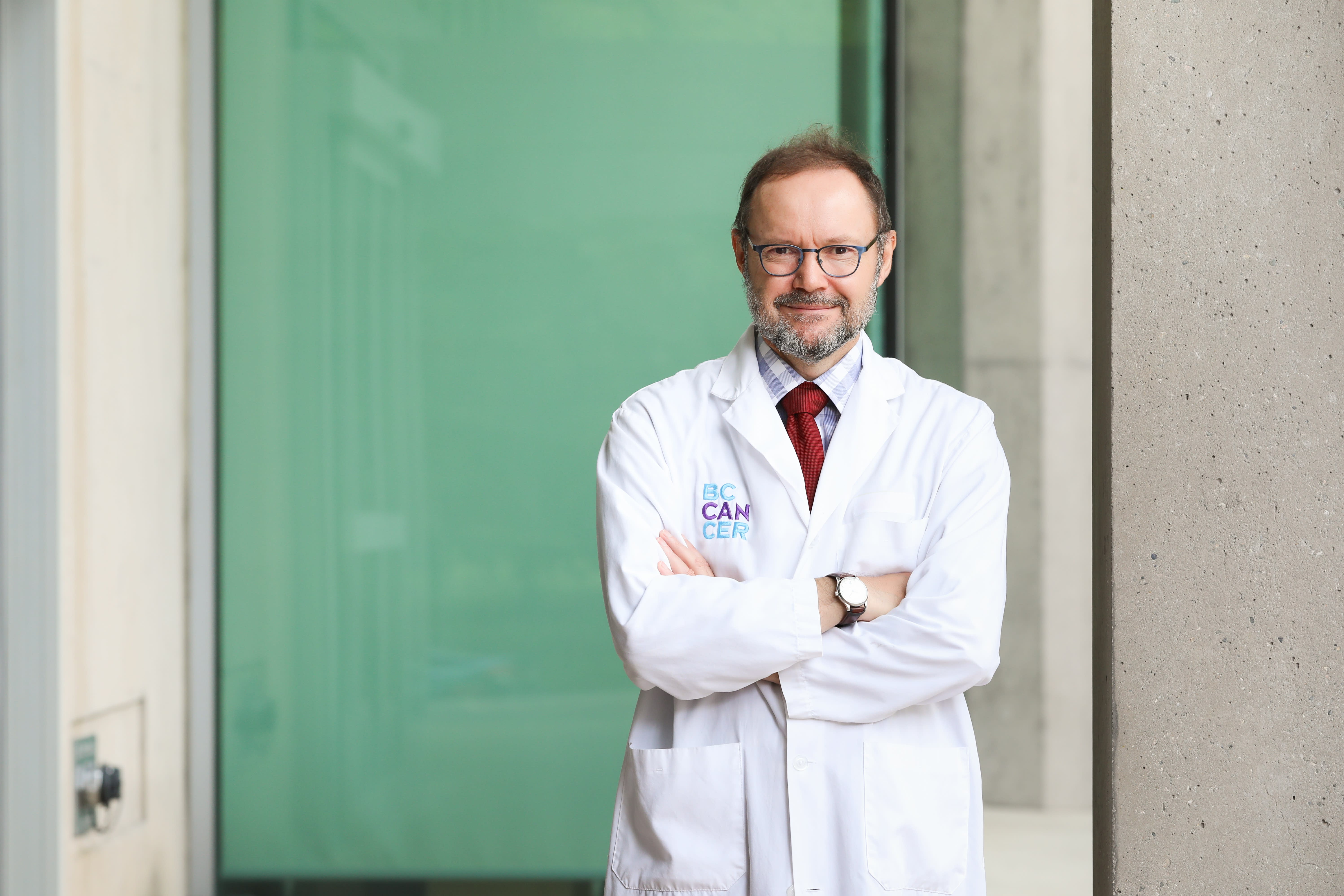Hello,
My name is Dr. David Huntsman and it is a pleasure to return as guest blogger for the BC Cancer Foundation. It has been several years since my last blog, and a lot has happened with regard to ovarian cancer research at the BC Cancer Agency.
British Columbia’s Ovarian Cancer Research Program (OVCARE) first began over a dinner conversation with my colleague Dr. Dianne Miller, the head of gynecological oncology at the BC Cancer Agency. She was tired of seeing women dying from ovarian cancer and demanded that clinicians and researchers work more effectively as a team to put an end to this disease.
Since that conversation took place, Dr. Miller and I, along with a robust and ever-growing team, have expanded the program into multi-institution partnership that has changed the course of ovarian cancer treatment, management and prevention not just in this province, but globally. I can truly say it is an exciting time at the moment for ovarian cancer research and care, in large part thanks to the many donors to the BC Cancer Foundation who support this vital work.
For the first few years of the program’s existence we were very focused on determining the nature of ovarian cancer, how many types there were and how we could reliably tell the difference between these subtypes in practice. From that we worked to develop an overall strategy based on the hypothesis that since ovarian cancer subtypes are distinct diseases, we have to develop multiple prevention and treatment strategies for these subtypes.
We’ve since made a broad array of discoveries, such as what key mutations drive these specific cancers, as well as advances in diagnostic and therapeutics for these subtypes. What drives each and every one of these discoveries is our collective view that every patient diagnosed with this disease represents a prevention failure. We’ve been focusing very much on applying what we’ve learned about ovarian cancer to prevent them from happening in the first place.
When the program first began, much of the research took place in my own laboratory. But over the last several years, we’ve been fortunate to be able to expand our team to include world-leading investigators such as Drs. Sohrab Shah and Jessica McAlpine and others such as Anna Tinker, Gillian Hanley, Aline Talhouk and Michael Anglesio who are building their careers with OVCARE and have become essential parts of our operation. This team is contributing greatly to the understanding of this disease, with the goal of increasing our capacity to help women suffering from this disease, now and well into the future.
We’ve also made partnerships with several other institutions, such as BC Children’s Hospital and BC Women’s Hospital, as well as the Centre for Disease Control. This has enabled us to tackle the issue of ovarian cancer from all sides of the treatment spectrum, such as survivorship and protection, and that has been truly exciting.
By developing a reputation and experiencing success through teamwork, we get closer and closer to finding better ways to treat this disease. Our team goal is to reduce death and suffering from gynecological cancers by 50 per cent over the next 15 years, and with continued support towards our program as we grow and expand our research capacity, we are well poised to meet this goal.
Thanks for reading,
Dr. Huntsman


